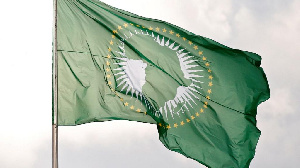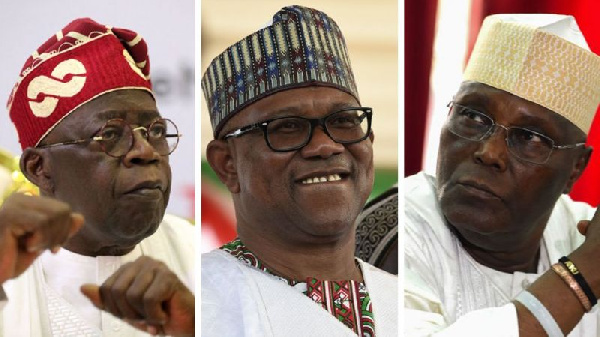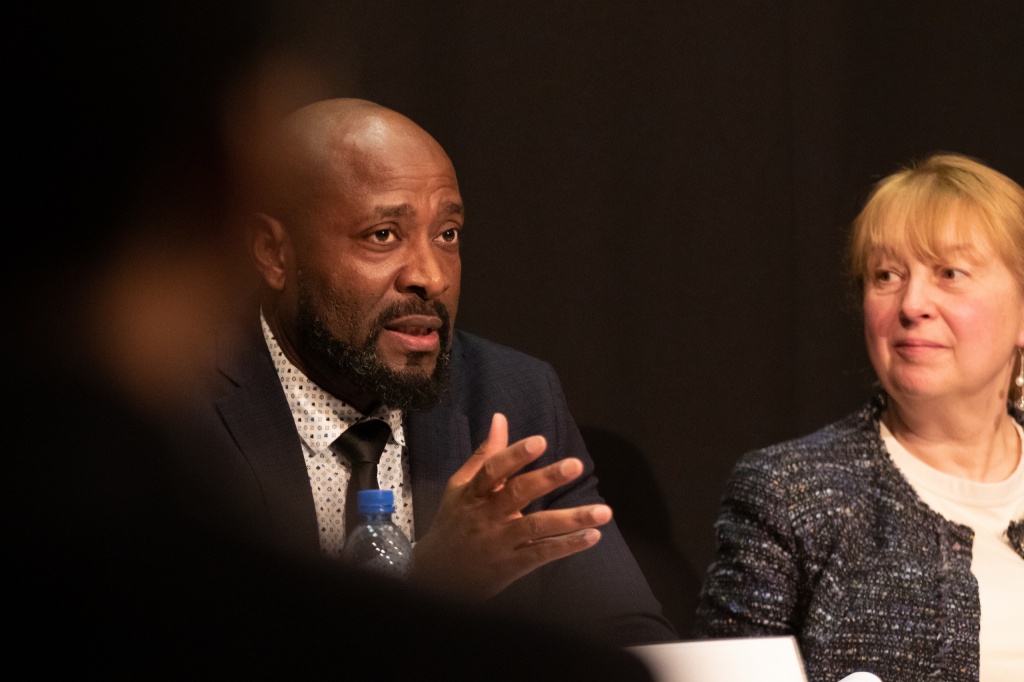Reactions pour in as Israel rejoins African Union 19 years after Gaddafi forced it out

Israel is rejoining the African Union (AU) as an observer member, 19 years after it was ousted from the pan-African bloc due to pressure by then-Libyan leader Muammar Gaddafi.
Israeli has been pushing hard to become an AU member since its suspension after the union was formed in 2002 to replace the Organization of African Unity.
Israel’s ambassador to Addis Ababa, Aleleign Admasu, officially submitted Israel’s charter as an observer member to the 55-member continental organization on last Thursday.
“This is a day of celebration for Israel-Africa relations,” said Foreign Minister Yair Lapid. “This diplomatic achievement is the result of efforts by the Foreign Ministry, the African Division, and Israeli embassies on the continent.
“This corrects the anomaly that existed for almost two decades,” Lapid continued, “and is an important part of strengthening of fabric of Israel’s foreign relations. This will help us strengthen our activities in the continent and in the organization’s member states.”
Israel had twice attempted to return to the organization in recent years but failed.
This time around, the Foreign Ministry announced a “diplomatic operation” that involved a visit by the ministry’s director-general of African affairs, Aliza Ben-Noun, to the Ethiopian capital, Addis Ababa, where she met with 30 ambassadors from member countries, Haaretz reports.
Israel joining the AU as an observer state will not only increase its cooperation with member nations on various economic and security issues but will also represent “a political recognition” by the organization.
“This political recognition is extremely important because it’s not good enough to have good bilateral relations with the member states,” Ben-Nun told Haaretz, adding that Israel can now get closer to the remaining African states it does not have diplomatic ties with.
“Once the relationship with the African Union is established, the parties will be able to cooperate, among other things, in the areas of the fight against the coronavirus and the prevention of the spread of extremist terrorism throughout the continent,” the Foreign Ministry said in a statement.
Israel holds formal relations with 46 African nations, which are all members of the African Union. In recent years, it renewed relations with Guinea and Chad after the two countries cut their diplomatic ties to Israel in 1967 and 1972 respectively.
In October 2020, Israel also signed a normalization agreement with Sudan. And now, having a physical presence at meetings of the AU allows Israel to “know what is happening” and keep up to date with “political developments and initiatives” on the AU’s agenda, experts told Haaretz.
“Gaddafi had forced Israel out – After 19 years, Israel returns to African Union as Observer. It reflects changing geopolitics in North Africa,” Ashok Swain, a professor of peace and conflict research, wrote on Twitter, reacting to the news.
“Destabilizer of the Middle East has set it’s eyes on African Union. God save Africa,” another Twitter user wrote. “That was the grand-plan to destabilise middle east and North Africa to pave way for israel’s legitimisation,” another wrote.
“That’s exactly the reason why Gaddafi was hounded out of power,” one stated.
“What is Israel observing in the AU?”, another asked.
“The African Union is a god damn disgrace. They can give Israel observer status but will flat out deny Haiti. Organisation of dirty kewns,” a Twitter user added.
“Israel is advancing deep into Afrika and it’s a welcome development as they are now established observer status in AU,” one wrote.
The former prime minister of Israel Benjamin Netanyahu made Israel’s relations with Africa a priority during the latter half of his 12 years in office.
In 2016, he became the first Israeli premier in decades to travel to the continent when he visited four East African nations — Uganda, Kenya, Rwanda and Ethiopia, according to the Times Of Israel. In Kenya, he said, “There are 50 countries in Africa.”
“Just about all of them could be allies of Israel. They vote at international forums, and I know people don’t believe this, but I think we can change the automatic majorities in the UN and so on if you begin to shift this.”
That same year, ministers and other officials from various Western African countries traveled to Jerusalem for an agricultural conference that was co-sponsored by ECOWAS and Mashav, Israel’s Agency for International Development Cooperation.
Apart from strongly believing that its absence in the African Union had affected the country in terms of votes in international forums as a result of the country’s voice not being heard, Israel had always been of the opinion that readmitting it into the AU as an observer will help attract Israeli investment to Africa. But Israel’s tarnished history with the African continent remained an obstacle.
In 2013, during the 21st summit of the AU in Ethiopia, the AU granted Palestine observer status, voicing support for the Palestinian struggle to establish an independent, viable state with East Jerusalem as its capital.
The organization also expressed concern over Israeli occupation of Palestinian land and other Arab territories which, it said, violates international law.
Since 2013, Palestinian leader Mahmoud Abbas has been addressing the Union, a move Israel sees as a disadvantage since it will need the support of the giant bloc of African countries to push through its expansion agenda into Palestinian territories.
The Israeli-Palestinian conflict, since 1948, is over who gets what land and how it is controlled. Israel, the world’s only Jewish state, is located just east of the Mediterranean Sea.
Palestinians, the Arab population that hails from the land Israel now controls, refer to the territory as Palestine and want to establish a state by that name on all or part of the same land.
This had led to series of wars between Israel and the surrounding Arab nations over the territory, resulting in deaths and injuries. The war in 1967 left Israel in control of the West Bank and Gaza Strip, two territories home to large Palestinian populations.
A “two-state solution” that would establish Palestine as an independent state in Gaza and most of the West Bank, leaving the rest of the land to Israel is said to be the primary solution.
As the Palestinian struggle for freedom and human rights captures international attention, more and more countries have come under pressure to declare their stance on the Israeli occupation and most African countries including Ethiopia, Tanzania, and South Africa have never shied away from stating their position.
Africa has already faced a dark history involving the slave trade, colonialism, apartheid and genocide and would, therefore, not want a repeat of Israel’s version of apartheid on Palestinians.
African countries had been further discouraged from allowing Israel into the AU due to the latter’s harsh and discriminatory treatment of economic migrants and refugees, particularly from Sudan and Eritrea.
Israel has been keen on kicking out African asylum seekers after unsuccessful threats of illegal deportation of about 40,000 people, imprisonment and even suspension of a relocation deal by the U.N. refugee agency to send them to Western countries.
In effect, most African countries had been wondering how Israel would be able to make its supposed significant contributions to the continent while it continues to be unwelcoming to people from the continent.






